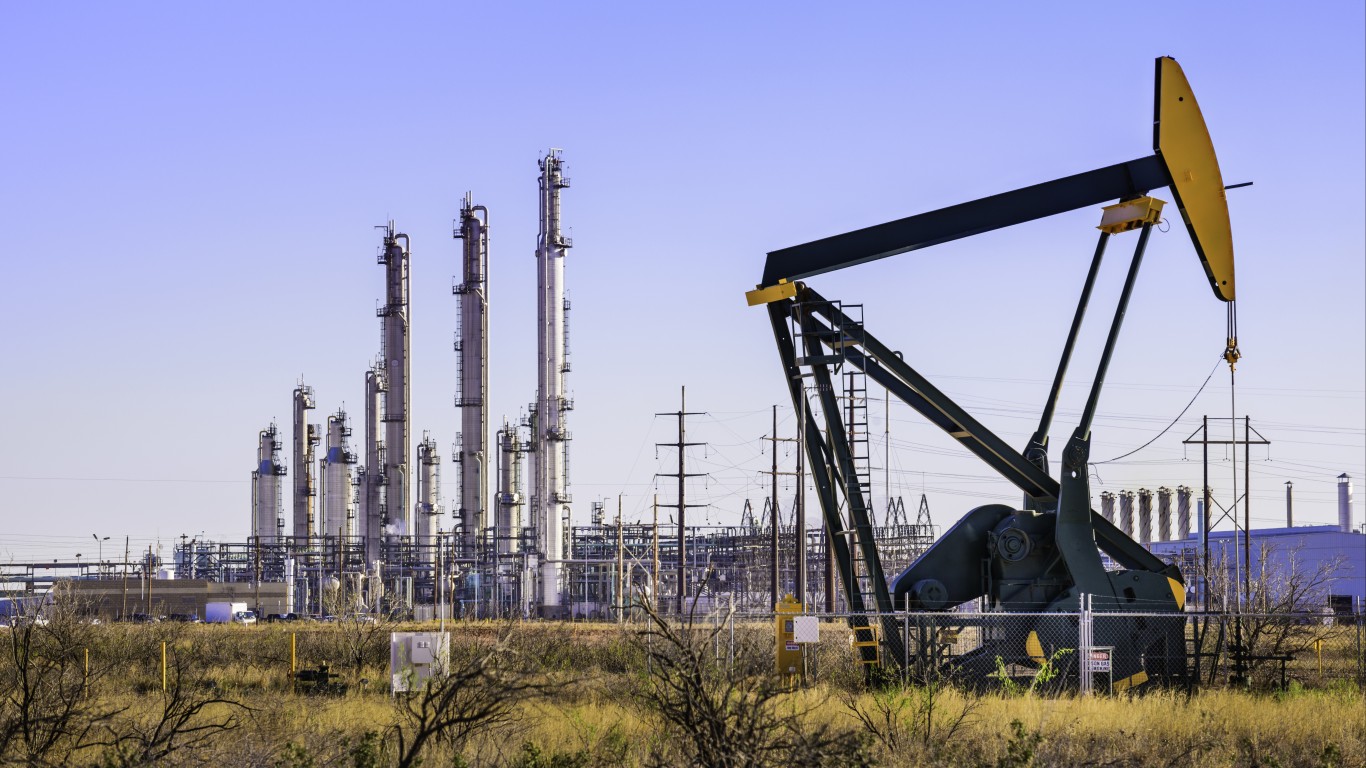
In yet another one of those rumors that leave a lot of people scratching their heads, Bloomberg reported Wednesday morning that unnamed sources say that independent oil and gas producer ConocoPhillips (NYSE: COP) is talking to Concho Resources Inc. (NYSE: CXO) about acquiring the smaller independent company.
At Tuesday’s closing price of $44.14 per share, Concho’s market cap was around $8.6 billion and, at one point, shares traded 10% higher in Wednesday’s premarket. Bloomberg’s sources said a deal could be announced in the next few weeks.
[in-text-ad]
Conoco shares closed down about 2% on Tuesday at $34.88 and traded down another 1.1% in Wednesday’s premarket. The company’s market cap is around $37.4 billion, and its enterprise value, including nearly $4 billion in long-term debt is around $12.3 billion.
In April last year, Occidental paid a premium of around 20% in its $38 billion acquisition of Anadarko. When Chevron announced its $5 billion acquisition of Noble Energy in July, the premium to Noble’s share price at the time of the announcement was 7.6%. Late last month, Devon paid a 2.6% premium for its $2.6 billion acquisition of WPX Energy.
Notice a pattern here? Acquisitions in the oil patch are more highly valued by investors (and sell-side analysts) than by the oil companies making the deals. What attracts potential acquirers are the low, low premiums and the resultant cost per barrel of the acquired company’s proved reserves.
At the end of last year, Concho reported 1 billion barrels of proved reserves. By definition, a proved barrel can be extracted with 90% certainty at current economics. If Conoco pays something around $12.5 billion for Concho, each proved barrel will cost Conoco at least $12.50. Chevron paid about $5 per proved barrel for Noble Energy, and Devon paid about the same for WPX’s 527 million barrels of proved reserves. Conoco CEO Ryan Lance cited Chevron’s low premium for Noble Energy as an encouraging sign for asset deals.
Paying that much per proved barrel at a time when crude oil demand is down about 8% year over year and not scheduled to recover until late next year or early in 2022 is a bet on longer term demand for crude that is unlikely to occur. In its 2020 World Energy Outlook published Tuesday, the International Energy Agency expects crude oil demand growth to cease in 2030 at about 104 million barrels a day.
In 2019, Concho’s oil and gas production costs totaled $5.93 per barrel of oil equivalent and operating costs totaled $28.72 per barrel. Of total operating costs, $16.25 per barrel was attributed to depreciation, depletion and amortization; that is, the value of the oil produced.
The only way Conoco makes this deal is if it can’t find a better one. Now that the rumor is out, other potential acquirees may turn up. There are plenty of candidates left, but the big issue is whether now is the right time for the bigger fish to eat the littler ones. Now is not the time to overpay for assets that may one day be stranded.
Concho Resources stock traded up around 11% early Wednesday, at $48.98 in a 52-week range of $33.13 to $93.34. The stock’s consensus 12-month price target is $72.00. Concho pays a dividend yield of 1.79%.
ConocoPhillips stock traded up about 1% to $35.21, in a 52-week range of $20.84 to $67.13 and with a price target of $49.12. The company pays a dividend yield of 4.93%.
100 Million Americans Are Missing This Crucial Retirement Tool
The thought of burdening your family with a financial disaster is most Americans’ nightmare. However, recent studies show that over 100 million Americans still don’t have proper life insurance in the event they pass away.
Life insurance can bring peace of mind – ensuring your loved ones are safeguarded against unforeseen expenses and debts. With premiums often lower than expected and a variety of plans tailored to different life stages and health conditions, securing a policy is more accessible than ever.
A quick, no-obligation quote can provide valuable insight into what’s available and what might best suit your family’s needs. Life insurance is a simple step you can take today to help secure peace of mind for your loved ones tomorrow.
Click here to learn how to get a quote in just a few minutes.
Thank you for reading! Have some feedback for us?
Contact the 24/7 Wall St. editorial team.




